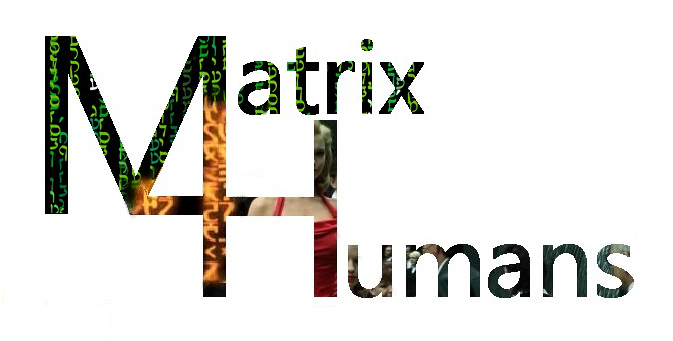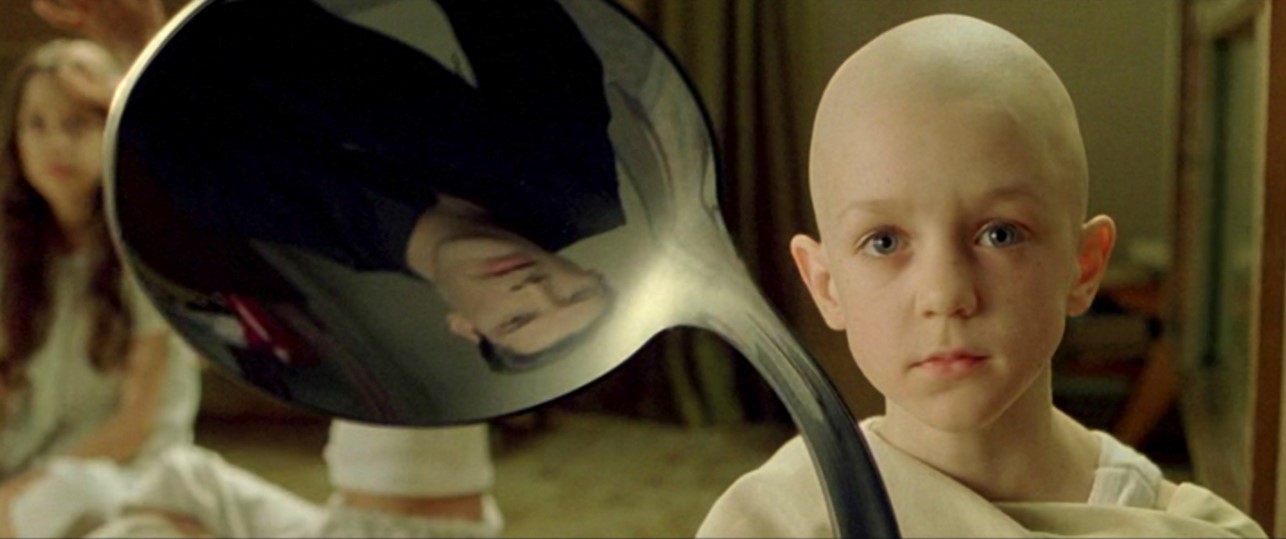Neo as One of the Potentials?
In the first Matrix movie, when Neo is brought to see the Oracle, he arrives in her apartment where he sees children involved in peculiar activities. The woman escorting him refers to them as “other Potentials.” It may seem odd that Neo is grouped among them.
Morpheus’ previous words point to Neo being an exception:
“We have a rule. We never free a mind once it’s reached a certain age. It’s dangerous, the mind has trouble letting go.”
Two Pieces To This Puzzle
The kabbalistic term for Wisdom, Chokhmah, is made of two Hebrew root words, Koach and Mah. Koach means “potential.” Mah means “what is.”
Thus, Chokhmah relates to the next level of someone’s advancement – the “potential of what is” – to be “the One” in Neo’s case.
However, upon being ‘examined’ by the Oracle, Neo receives a ‘disappointing’ assessment: He remains one of the potentials who might be “the One.”
Oracle: Sorry, kid. You got the gift, but it looks like you’re waiting for something.
Neo: What?
The Oracle: Your next life maybe, who knows? That’s the way these things go.
What did she mean by this?
Connecting Potentials and Belief
As discussed in our Introductory files, Wisdom/Chokhmah is closely associated with the world of Existence, which is beyond the three worlds that make up ‘creation.’
As this world is beyond the physical, emotional and intellectual dimensions, it is associated with the concept of belief or faith.
Part of the Oracle’s ‘strategy’ all along was getting Neo to believe in himself – his “true self.”
First, she tells Neo about Morpheus’ absolute faith in him:
Morpheus believes in you, Neo. And no one, not you, not even me can convince him otherwise.
And then hit him with this:
Oh, don’t worry about it. As soon as you step outside that door, you’ll start feeling better. You’ll remember you don’t believe in any of this fate crap. You’re in control of your own life, remember?
The Oracle’s approach in dealing with Neo is one of constriction (called ‘tsimtsum’).
Rather than try to push information onto Neo that he wasn’t ready to deal with, she initiates a process of first “making room” for greater understanding. Her words work to ‘unbalance’ his current perspective.
Everyone’s advancement (spiritual, consciousness) is always preceded by some type of tsimtsum.
As with the concepts of Love and Trust, Belief is a central theme to the entire Matrix trilogy.
Some examples are:
When Neo suddenly turns around to confront Smith in the subway station:
Morpheus: He’s beginning to believe.
The inexperienced “Kid,” had faith to rely on when he took the reigns to open the gate in the dock.
Kid: Neo. I believe.
And of course the very last words of Matrix Revolutions:
Oracle: … But I believed. I believed.



